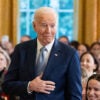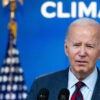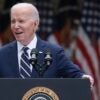General Prayuth Chan-Ocha, leader of the May 2014 coup in Thailand, has capped off his rise to power by essentially appointing himself prime minister. His real accomplishment, however, will come in maintaining his pledge to return Thailand to democracy by October 2015.
Since leading the coup, General Prayuth declared martial law, instituted a temporary curfew, and significantly curtailed freedom of the press, association, and freedom of speech. His leadership has been representative of the military’s interest in tightening its grip on power.
In addition to being prime minister, Prayuth retains his positions as head of the National Council of Peace and Order and the head of the military. While Prayuth plans to resign from his position as head of the military in mid-September, the interim constitution gives the military a degree of “absolutist powers.” Reports indicate that Prayuth will appoint military officers, perhaps retired, to key cabinet posts.
The U.S. and Thailand have historically enjoyed robust military-to-military relations. The U.S. has long provided training and education to the Thai military and partnered with it on several prominent military exercises, including Cobra Gold, the largest multinational exercise in the Asia–Pacific.
Since the coup, the U.S. has suspended at least $3.5 million in foreign military financing assistance and $85,000 in international military education and training assistance. The U.S. also canceled military exercises and high-level exchanges between the two nations. The State Department has not officially revoked additional aid to Thailand, but assistance cannot legally be restored until democracy is restored.
The coup happened. That can’t be changed. But what can be changed is how the coup is handled.
Thailand is approaching a situation unknown to the vast majority of its people—a royal succession. And this on top of an extended period of upheaval surrounding the ambitions and political future of former (now fugitive) Prime Minster Thaksin Shinawatra. The U.S. should be patient with Thailand as it tries to work through this extraordinarily complex situation.
At the same time, for the sake of the alliance, it should persist in calling for a return to democracy and keep its friends in the military government to their word. While relations between the U.S. and Thailand may not get worse, they can’t get better until a democratically elected government takes office.





























